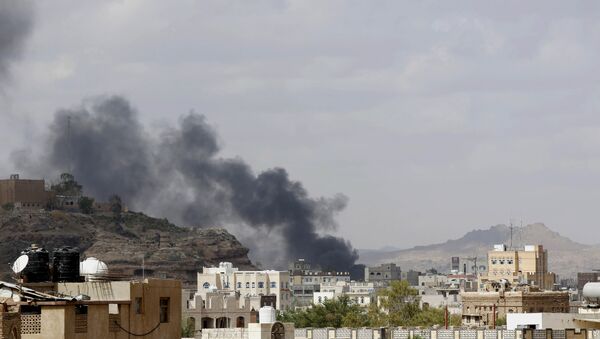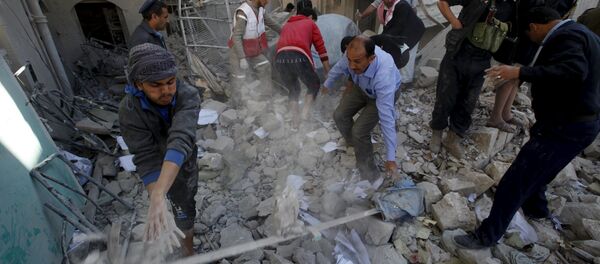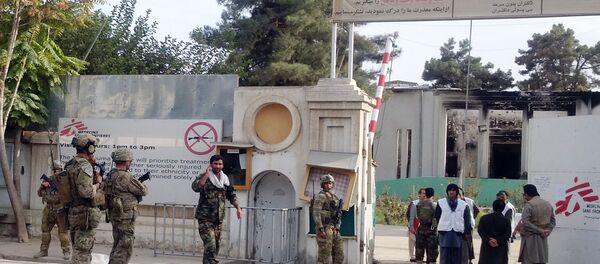Both the United States and Saudi Arabia are signatories of the Geneva Convention, which prohibits the willful causing of great suffering during war time, and explicitly forbids the targeting of civilians. But despite this understanding, both nations are responsible for the deaths of thousands of civilians in only ten months of Riyadh’s military intervention in Yemen.
"Saudi Arabia has engaged in war crimes, and the United States is aiding and abetting them by providing the Saudis with military assistance," Marjorie Cohn writes for teleSUR.
A report from Human Rights Watch released in November found that the Saudi-led coalition has failed to investigate unlawful airstrikes. Looking at 10 specific airstrikes, the report concludes that they "appear to have violated international humanitarian law, the laws of war," and that "the United States is also obligated to investigate attacks in which it played a role that allegedly violated the laws of war."
Separately, a United Nations panel concluded in October that the coalition was responsible for “grave violations” of civilians’ human rights, including indiscriminate bombings, targeting civilian sites, and intentionally preventing delivery of humanitarian aid.
"The International Committee of the Red Cross documented 100 attacks on hospitals," Cohn writes.
Yet Washington looks the other way in the interest of profit.
"In November 2015, the US sold $1.29 billion worth of arms to Saudi Arabia. It included more than 10,000 bombs, munitions, and weapons parts manufactured by Raytheon and Boeing, as well as bunker busters, and laser-guided and 'general purpose' bombs," she writes.
In the last five years, Washington has sold Riyadh roughly $100 billion in arms.
But the US does more than turn a blind eye to Riyadh’s abuses.
"In April 2015, the US government prevented nine Iranian ships loaded with relief supplies from reaching Yemen," Cohn writes, despite the fact that "21 million people lack basic services, and over 1.5 million have been displaced."
Saudi Arabia’s abuses are not limited to its military campaign, however. Riyadh also violates human rights domestically, especially in regard to its increasing reliance on capital punishment.
"Many of those executed were tortured during their detention and denied due process. Most were beheaded," Cohn writes.
"This horrifies us when ISIS does it. Yet State Department spokesman John Kirby protested weakly, 'We believe that diplomatic engagement and direct conversations remain essential in working through differences.'"
One example is the Saudi poet Ashraf Fayadh, who was executed this month for apostasy and for photographing women.
US legislation known as the Leahy Law should prohibit Washington’s cooperation with the Saudi-led coalition, as it forbids assistance to foreign governments that are knowingly committing excessive human rights violations.
"The US government should immediately halt arms transfers and military support to Saudi Arabia and support and independent investigation into US arms transfers and war crimes in Yemen," Cohn writes.
With a US presidential election approaching, one can hope that a new administration will bring change. But given that the Saudi government has given $10 million to the foundation of the leading Democratic candidate, that seems unlikely.
"Hillary [Clinton] now says the US should pursue 'closer strategic cooperation' with Saudi Arabia."





